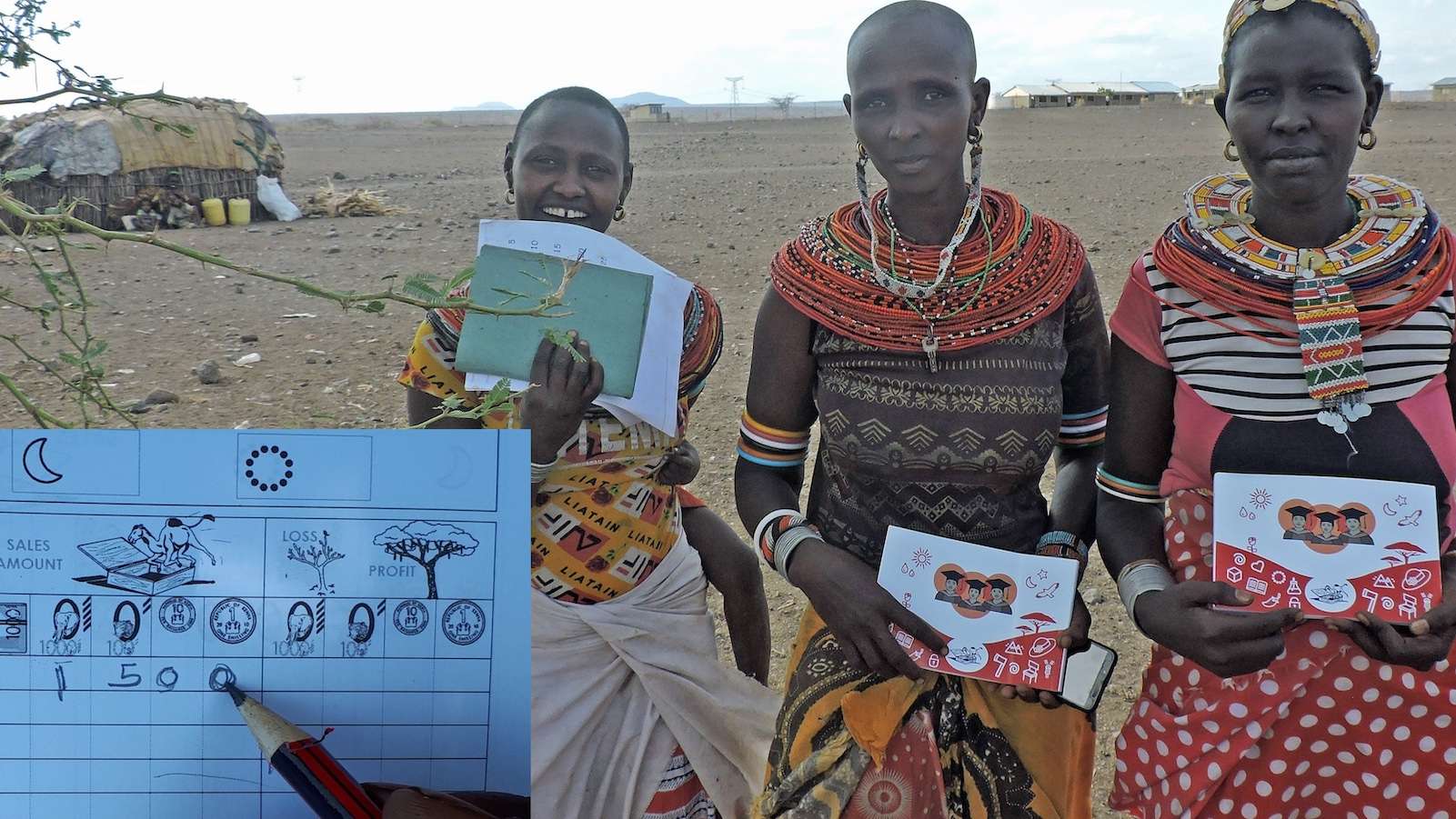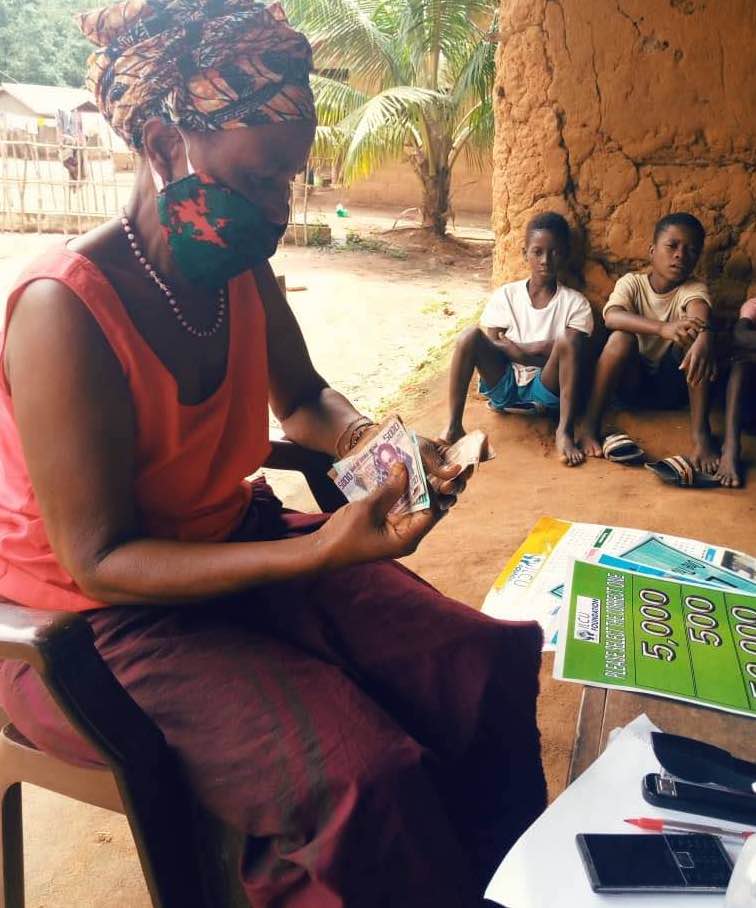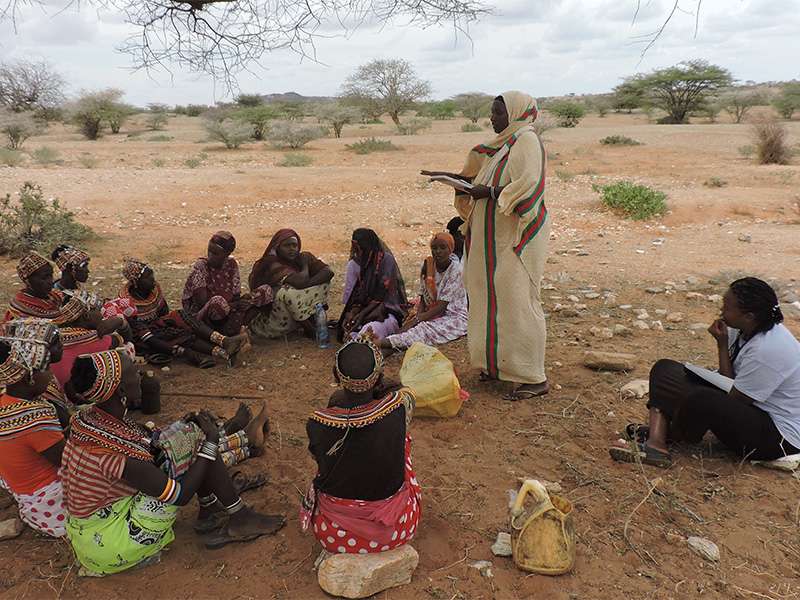
Calculating a Response to Extreme Poverty
My Oral Village
At the border of the Chalabi Desert in rural Kenya, Makena* and her husband were struggling to feed their family and send their children to school. With very limited literacy and numeracy abilities, the couple struggled to earn enough income to meet their family’s basic needs. Makena, having little access to education throughout her life, could not read or write numbers larger than two digits, or add and subtract them.
This scenario is all too common in the remote communities of Kenya’s northern drylands. Widespread illiteracy and innumeracy contribute to extreme poverty and food insecurity in the region. Adult women have limited access to remedial educational opportunities, and many girls leave school early to help their mothers fetch water from distant sources and perform all domestic duties. Opportunities for earning income or economic empowerment are extremely limited.
To address these issues, My Oral Village (MOVE), along with Kenyan NGO The BOMA Project (BOMA), used FIT support to test a set of image-based innovative solutions aimed at increasing economic empowerment for illiterate and innumerate women living in extreme poverty. These solutions, labeled by MOVE as Oral Information Management (OIM), reinforced BOMA’s poverty graduation program, an initiative that provides business startup grants, teaches women basic numeracy and business skills and establishes self-managed savings and lending groups. The innovation project empowered the participating women to master and use image-based digital and analog (paper-based) financial numeracy and recordkeeping tools to accurately record transactions in their businesses and savings groups.
MOVE’s innovation was tested with 450 illiterate and innumerate (mostly) pastoralist women living in the drylands. The women had been empowered by BOMA to form a total of 150 three-woman businesses that raise and sell livestock or operate ‘dukas’ (corner shops). MOVE’s innovations then provided the women with transactional recordkeeping tools to help them succeed in business and sustain their savings groups.

The OIM innovations originally emphasized the use of MOVE’s 4Share Cash Calculator – an Android app that supports poorly schooled adults to track their financial transactions. However, inconsistent access to charging stations in the region prompted MOVE to pivot and place equal or greater emphasis on sustainable paper-based OIM tools.
A challenge was presented during the testing project when the region experienced its worst drought in over 40 years. The drought decreased the time women were able to commit to learning and placed some livestock businesses in jeopardy. MOVE and BOMA adapted to this reality by creating a learning platform to support self-directed practice groups, allowing the women to help one another learn independent of BOMA staff and on their own schedules.

Despite these challenges, MOVE reported meaningful and encouraging gains in financial numeracy among the participants. Their ability to read and understand the meaning of a four-digit number more than doubled, from 21% at baseline to 46% at endline, while their ability to read two-digit numbers rose from 27% to 51%. Nearly half of the endline sample of 150 women (one from each business) have the basic capacity to complete business records without help. Additional findings indicated participants’ decision-making scope increased in both the purchase and sale of livestock since baseline, signaling initial steps towards women’s economic empowerment. At endline most participants expressed a strong interest in continuing to improve their numeracy and recordkeeping skills. Given the promising data, BOMA is considering a second pilot in some of the same locations where women were provided with OIM tools earlier in the training period. MOVE will support a sustainable scale-up of the project going forward.
Today, Makena can read and write four-digit numbers, and no longer needs her son to help keep her records. With a grant from BOMA, Makena and two friends launched a kiosk business and received training through MOVE that featured icon-based records and the 4Share app. This awakened Makena’s interest in business and mathematics. On Sundays she meets with other women in the project to keep expanding her new skills. She is increasingly seen as a community leader.
“The record books are easy to use because the icons in them remind me of daily life. I didn’t get a chance to go to school but will ensure my children receive a proper education.’’
Thanks to Makena’s motivation to empower other women, the ripple effects of BOMA and MOVE’s investment in her potential is limitless.
"When we come together, we learn from each other,” Makena reflects. “Coming together helps us to be better.’’
* Names have been changed to protect identities

